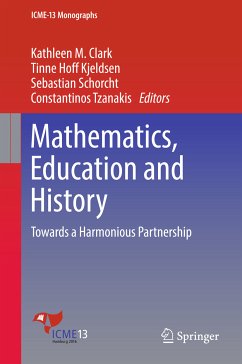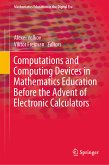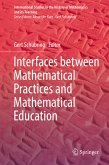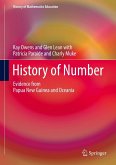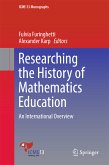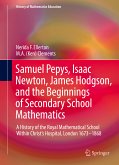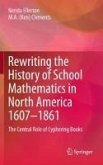The 18 chapters of the book are divided into five interrelated parts that underlie the central issues of research in this domain:
1. Theoretical and conceptual frameworks for integrating history and epistemology in mathematics in mathematics education;
2. Courses and didactical material: Design, implementation and evaluation;
3. Empirical investigations on implementing history and epistemology in mathematics education;
4. Original historical sources in teaching and learning of and about mathematics;
5. History and epistemology of mathematics: Interdisciplinary teaching and sociocultural aspects.
This book covers all levels of education, from primary school to tertiary education, with a particular focus on teacher education. Additionally, each chapter refers to and/or is based on empirical research, in order to support, illuminate, clarify and evaluate key issues, main questions, and conjectured theses raised by the authors or in the literature on the basis of historical-epistemological or didactical-cognitive arguments.
Dieser Download kann aus rechtlichen Gründen nur mit Rechnungsadresse in A, B, BG, CY, CZ, D, DK, EW, E, FIN, F, GR, HR, H, IRL, I, LT, L, LR, M, NL, PL, P, R, S, SLO, SK ausgeliefert werden.
"I would recommend any novice considering using the history of mathematics in their teaching to read this piece. It thoughtfully asks the relevant questions necessary for such an endeavor, outlines the history of efforts made in working towards a "fruitful and harmonious interplay among History, Education and Mathematics" and then offers this most recent contribution of experiences and suggestions. ... This is a good, useful and readable book." (Frank Swetz, MAA Reviews, August, 2018)

